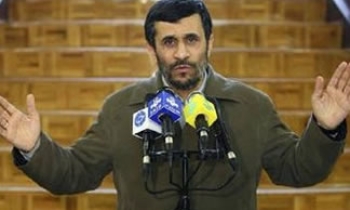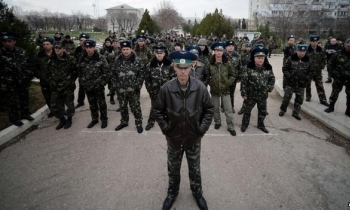The head of the Chinese Internet company that has acquired Yahoo's China operations has defended the US portal's decision to help communist authorities track down and prosecute dissident journalist Shi Tao, the Financial Times has reported.
Yahoo has been widely condemned for assisting the case against Shi Tao, who was jailed for 10 years in April this year for revealing information about government controls on the media. In an open letter to Yahoo, co-founder Jerry Yang, a leading Chinese human rights activist and advocate of Internet freedom, recently accused Yahoo of betraying its customers.
The founder and chief executive of Alibaba.com, Jack Ma, however feels criticism is unjustified. "I think it's unfair to Jerry," said Ma, one of China's most high-profile Internet entrepreneurs. "Business is business; it's not politics." Alibaba.com took control of Yahoo China as part of a strategic alliance with the US company announced in August.

Yahoo's role in the case against Shi has highlighted questions about the degree to which international companies cooperate with the Chinese government, which heavily censors the Internet and often uses police and courts to silence critics. Yahoo helped Chinese authorities track down Shi by giving them the Internet address from which he accessed his Yahoo email. Shi was convicted of "leaking state secrets".
With Yahoo transferring its China business to Ma, it is likely to draw less direct criticism now. It would therefore be Ma who might now find himself at the receiving end of Chinese dissidents for his statement: "I would do the same thing. I tell my customers and my colleagues, that's the right way to do business."
This was of doing business was damned by prominent dissident Liu Xiaobo in his scathing open letter that was circulated widely on the Internet. "I must tell you that my indignation at and contempt for you and your company are not a bit less than my indignation at and contempt for the communist regime," wrote Liu. "Profit makes you dull in morality," he continued, "Did it ever occur to you that it is a shame for you to be considered a traitor to your customer Shi Tao?"
Xeni Jardin, co-editor of the popular blog BoingBoing, wrote, "Yahoo's hypocrisy is even more shameful because it is also in the news business. The company recently opened a news production division with promises of hard-hitting stories that US mainstream media are afraid to report."
"The launch of Yahoo's corporate-powered warblog, and its promise of more newsertainment to follow, raises anew the question how to define journalism. One obvious answer: Real journalists don't treat war as entertainment, and real news companies don't help imprison a man for reporting the truth – even if that would ensure profits."
Such trenchant criticism may not have cut ice with a callous Yahoo which has been flogging the compliance dead horse ever since, but there are others who don't want to be seen treading the Yahoo line. A group of international social investment funds has urged Internet firms to refrain from supporting repressive human rights practices in China and other nations.
In a letter from 25 investment funds based in the US, Switzerland, Canada and Australia that manage a total of US$21 billion in investments, fund managers warned companies ranging from Yahoo to Cisco of the risks in "collaborating to suppress freedom of opinion and expression."
The group said it was responding to the Yahoo controversy. The investment managers are part of a campaign spearheaded by media watchdog Reporters sans Frontières (RSF) to make sure multinational high technology firms are not helping authoritarian regimes censor speech and spy on their own populations.
Shi Tao has since been transferred to a high-security prison in Hunan province that is commonly used to hold political prisoners and hardcore criminals serving lengthy sentences, the Committee to Protect Journalists (CPJ) said in a press release on Friday last. Shi may read only officially approved material, and is forbidden from doing any significant writing, local sources told CPJ. He is being forced to cut and polish gems, they said. The CPJ will honour Shi on November 22 with its International Press Freedom Award for his courage in defending the ideals of a free press.
Shi was transferred from Chishan Prison in the city of Yuanjiang sometime after a court rejected his appeal in June, although few details have been publicly released. Details of Shi's confinement come just days before China celebrates its sixth national Journalists' Day on November 8. Under the administration of President Hu Jintao, a major crackdown on the media has taken effect, the CPJ said.
In September, the rights group Chinese Rights Defenders reported that Internet writer Li Jianping was officially charged with "inciting subversion" after being held since May on suspicion of defamation. In October, a court in Anhui Province rejected the appeal of Zhang Lin, who was sentenced in August to five years in prison for his online writings.
"On November 8, when China was celebrating its national Journalists' Day, Shi Tao and dozens of other Chinese journalists spent another day in jail," CPJ executive director Ann Cooper said. "The best way for China to honour journalists would be to release Shi Tao and all of the writers and editors now imprisoned for their work."

Officials from the Changsha security bureau detained Shi near his home in Taiyuan, Shanxi Province, on November 24, 2004, several months after he emailed notes detailing the propaganda department's instructions to the media about coverage of the anniversary of the crackdown at Tiananmen Square. Authorities confiscated his computer and other documents and warned his family to stay quiet about the matter.
On December 14, 2004, authorities issued a formal arrest order, charging Shi with "leaking state secrets." On April 27, 2005, the Changsha Intermediate People's Court found Shi guilty and sentenced him to a 10-year prison term. On June 2, the Hunan Province High People's Court rejected Shi's appeal without giving the journalist a hearing. Gao Qinsheng, the journalist's mother, has filed a request for review of the proceeding, alleging "serious procedural defects."
A leaked copy of the verdict in Shi's case revealed that American Internet company Yahoo had provided Chinese authorities with email account information used to imprison the journalist.
Despite the harsh conditions under which Shi is now held, Chishan Prison is an improvement from the detention centre where authorities held Shi prior to the rejection of his appeal. Until recently, Shi was deprived of regular contact with his family.
Meanwhile, China issued warnings to 53 Internet sites to remove illegal content within 24 hours or risk closure, state-owned Xinhua news agency reported. The General Administration of Press and Publication (GAPP) issued the notices Tuesday to sites that allegedly provided downloads of pornographic games. GAPP also announced it was activating a system that would monitor websites for pornography, violence and links to illegal publications, in an effort to ensure a 'clean environment' on the Internet.
The report said that individuals in charge of websites carrying illegal content would first be warned, then punished if they did not remove the offending content within 24 hours. Repeat offenders would have their publishing licenses revoked and their sites closed down.









